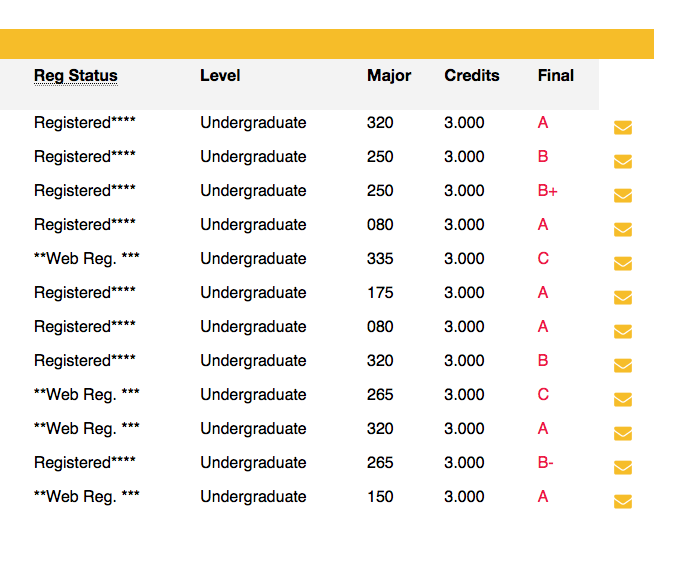By Darren Johnson
Campus News
For a few years, I taught Freshman Composition as an adjunct instructor at a community college. I have degrees in English, and there was a high demand for contingent instructors. Besides, many of the full-time instructors didn’t want to teach an entry-level course, especially at the odd hours adjuncts usually teach. Usually, my class was 6 to 9 p.m., sometimes on a Friday night. The campus was tumbleweeds by that time, except for the handful of students and adjuncts and the occasional security guard and janitor. Maybe a night secretary might be manning a Xerox machine. Maybe not.
Not being much of a bar hopper, who otherwise usually would just be holed up watching TV or reading on a Friday night anyway, I was happy to be of service to these end-of-week students, who mostly were worker bees looking to improve their skills during off hours. As for the subject matter, I would actually get eye rolls from fellow faculty when I would declare I liked teaching English 101.
But I really did.

I have taught a lot of courses over my lifetime. The ones I have enjoyed the most were ones where I could see a marked improvement in the student work over the 15 weeks. They weren’t just reading and regurgitating information for some Scantron test, to be quickly forgotten by Christmas, but learning actual skills that would serve them well in life.
One such course I used to teach like that was HTML. This course was perfect for the 15-week timeframe. At the beginning, each class I taught knew nothing about such coding. By the end of the semester, they were pumping out professional looking sites, which they created by hand. Their confidence grew, and they seemed quite proud of their progress.
Freshman Composition has a similar flavor. Not that such students come in knowing nothing about writing, but, at the community college level, they usually need to be brought up to speed to become better formal writers.
Through a series of exercises, from easy to creative to critical, freshman writers can build confidence to become college-worthy writers. In my classes, I would have them start by writing a bio on the student sitting next to them – that way, they made a friend; a difficult feat at a commuter college. Then, I’d have them keep journals, based in the Joan Didion essay “On Keeping a Notebook.” I’d have them write movie reviews to pick up critical skills, and then have them go to a physical place they’d never been to before to write a descriptive essay, using four senses; these teach one how to expand his or her writing, and to add color.
There were other assignments, but, eventually, the class would end with a research-style paper using MLA format, as most Freshman Composition classes do.
It was at that point in the semester where I’d feel more like a teacher than a mentor; I’d capably teach them how to write a passable MLA paper, and most did end up doing so, but none of our hearts were in it. The final papers would be handed in last class, and I’d offer to send back the papers to students with my marks via postal mail or email. Very few wanted the papers back.
Their final topics were obligatory: Pro/con on guns, same-sex marriage, abortion, vaccinations, global warming, ADHD, drug legalization, and so on.
Important issues, yes, but I knew and they knew that their papers weren’t going to change anything. Other people had written on these topics, more authoritatively and to much larger audiences (the audience in this case was one – me). We mostly were going through the motions of writing clearly, using a time-tested essay structure, and citing correctly.
While it’s true that future college classes may require the formal essay in MLA format, and these students do need to learn how to write in that style, it’s too bad the class had to end on such an uncreative down note, after all of the previous assignments had inspired creativity and good feeling.
And, in the real world, few writers use MLA format. While it’s necessary to know how and when to cite, most serious works outside academia tend to use a quasi-journalistic format. Why don’t we teach that, more mainstream style, instead?
Instead, to end on a high note, I’d usually bring in green and red holiday cookies for that last class of the fall semester, or pink and yellow in the spring. We had been in the trenches together for 15 weeks and fought many a battle, ending with a hard-fought victory over the MLA. It was time for good cheer.
But if I’m ever asked to teach Freshman Composition again – and I’d like to – I think I’d move the MLA stuff to the middle. Maybe make it a midterm of sorts. Learn it, respect it – but move on. So that we can end our semester proudly, on a high note. And, yes, there will still be holiday cookies!
And that’s the last word … for now!
 Darren Johnson has a Master of Fine Arts in Writing and Literature from Southampton College and currently teaches PR courses, when he isn’t running Campus News. Reach him at darren@cccn.us.
Darren Johnson has a Master of Fine Arts in Writing and Literature from Southampton College and currently teaches PR courses, when he isn’t running Campus News. Reach him at darren@cccn.us.







Facebook Comments